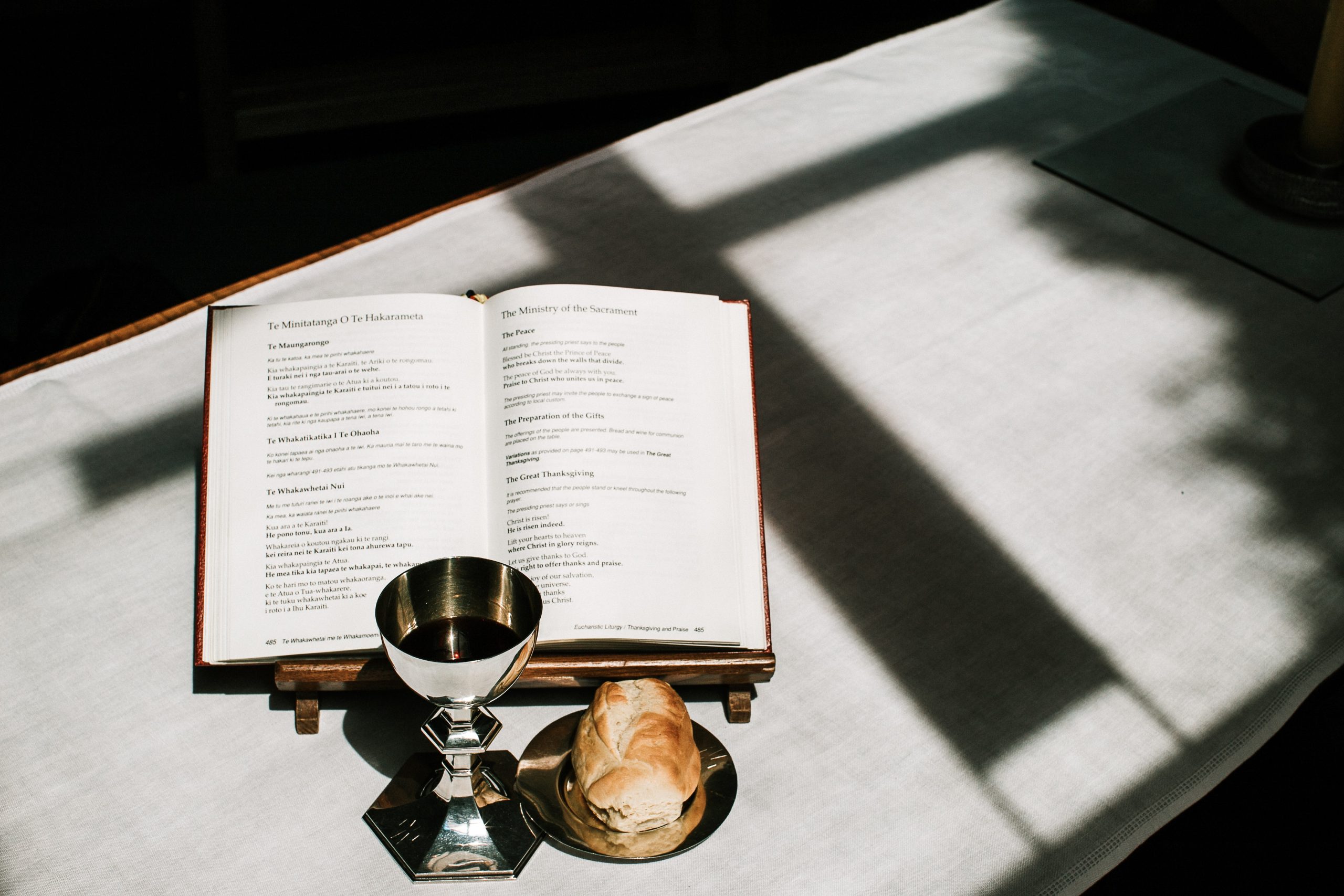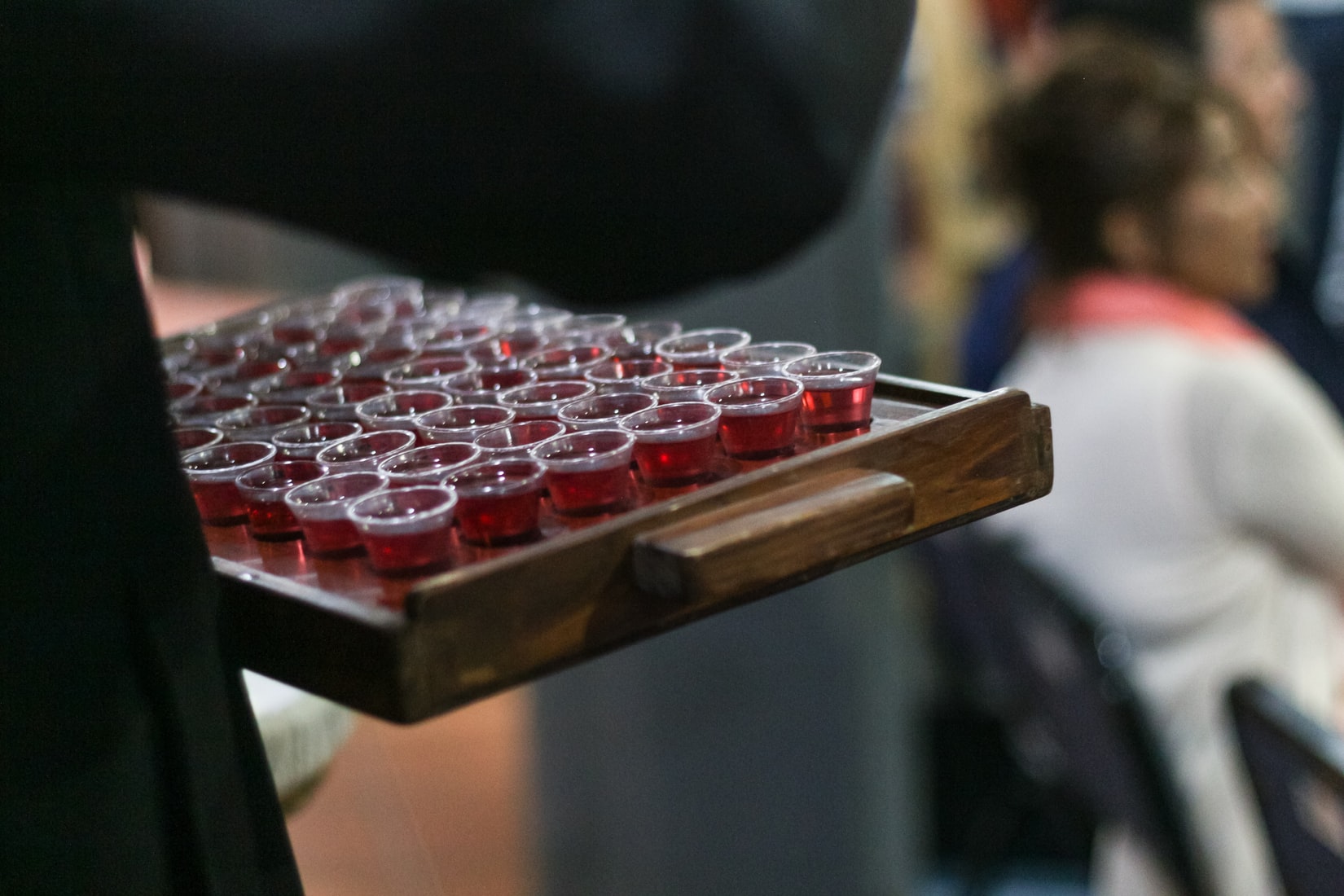Communion, also known as the Lord’s Supper or Eucharist, is Christ’s gift to the church. Communion is a means by which Christ continually nourishes, strengthens, and comforts us. It is one of two sacraments in the Reformed tradition. As such, the Lord’s Supper is a visible sign of something internal and invisible, the means by which God works in us through the power of the Holy Spirit.
When we celebrate the Lord’s Supper, we follow what Jesus did when he broke bread and drank wine with his disciples on the night before he died. We receive gifts of bread and wine or grape juice, give thanks to God, and share the food and drink with each other. In these simple actions, believers experience a profound mystery: Christ himself is present, and his life passes into us and is made ours. However, Reformed Christians do not believe that the bread and wine or grape juice are physically transformed into Christ’s body and blood.
A deeper dive into the theology behind communion can be found in the introduction to the sacraments. Provided here is an overview of how communion is celebrated in the Reformed Church in America.


